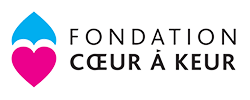- fondationcoeurakeur@gmail.com
- Cotonou, Camp Guezo, Rue 5100
VACCINATION OF CHILDREN IN BENIN
A shield against diseases
Childhood vaccination is essential to protect children from a variety of diseases in Benin, where the Expanded Programme on Immunization administers vaccines from birth. Children, especially those in vulnerable situations, are exposed to many microbes due to precarious living conditions. Vaccines strengthen their immune systems and prevent serious infections. Vaccines administered include those against hepatitis B, tuberculosis, diphtheria, tetanus, pertussis, polio, and yellow fever. However, challenges remain, including unequal access to vaccines and misinformation. To address these challenges, catch-up and awareness campaigns are being organized. The program aims to align its efforts with international targets for full immunization coverage. Vaccination remains a priority to ensure the health of children and prevent preventable diseases.
Childhood vaccination is an essential public health measure to protect young people from various infections and diseases. Children, especially young children, are more vulnerable because their immune systems are still immature. This makes them particularly susceptible to vaccine-preventable diseases. In Benin, the Expanded Programme on Immunization (EPI) plays a crucial role in administering vaccines to prevent potentially fatal diseases.
Children, especially those in situations of extreme vulnerability, often live in precarious conditions. These conditions increase their exposure to various microbes and pathogens. Vaccination is therefore a key preventive measure to avoid the onset of serious diseases in these children. Vaccines help strengthen their immune system, thereby reducing the risk of serious infections and life-threatening complications.
Benin’s vaccination schedule includes a series of routine vaccines administered from birth. According to Dr. Landry Kaucley, Director of Vaccination and Logistics at the Ministry of Health, the main vaccines include:
Hepatitis B vaccine (Euvax): Administered within the first 24 to 48 hours of life to protect against hepatitis B.
BCG: Administered to prevent tuberculosis, it is given at birth or within the first two weeks of life.
Pentavalent vaccine (Penta): A combination vaccine that protects against diphtheria, tetanus, whooping cough, hepatitis B and Haemophilus influenzae infections.
Polio vaccine: Administered in several doses to prevent this paralyzing disease.
Rotavirus diarrhea vaccine (Rota): Protects against serious gastrointestinal infections.
Invasive pneumococcal disease vaccine (PCV13): Prevents pneumonia and other serious infections.
Measles, rubella and yellow fever vaccines: Usually administered around 9 months of age.
Challenges of the Vaccination Program…
The main objective of the vaccination program is to ensure complete vaccination coverage for all eligible children, without exception. The vaccination coverage rate is measured regularly, and efforts are made to reach children in hard-to-reach areas or those who are under-vaccinated. However, “challenges persist, including inequitable access to vaccines, non-compliance with vaccination appointments, and misinformation that fuels mistrust of vaccines,” notes Laurenda ZINSOU, State-certified midwife.
To overcome these challenges, several strategies are implemented. Catch-up vaccination campaigns are organized, particularly in rural and isolated areas. The participation of community relays is crucial to identify unvaccinated or under-vaccinated children and refer them to vaccination services. In addition, efforts are being made to raise awareness among parents and communities through social mobilization campaigns and interpersonal communications.
Benin’s immunization program continues to align with regional and international public health goals, such as the 2030 Global Immunization Agenda. Initiatives such as digitization and digitalization of immunization activities are underway to improve efficiency and vaccination coverage. Emphasis is also placed on combating rumors and misinformation to build trust in vaccines.
Childhood immunization is a key priority to ensure the health and well-being of younger generations. Continued efforts to improve access and coverage are crucial to prevent preventable diseases and ensure a healthy future for all children in Benin.
(See the immunization schedule in the annex)
https://images.app.goo.gl/hLKk2eYCLJ1wWLnZA

